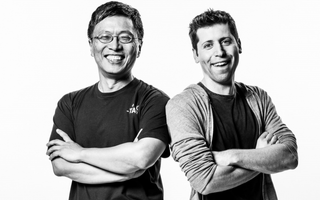OpenAI To Use Microsoft’s Azure Data Centers For Deep Learning Research

OpenAI, the nonprofit co-funded by Elon Musk, Sam Altman, Greg Brockman, and Ilya Sutskever, announced that it has partnered with Microsoft to use its Azure cloud for research and to “democratize” access to artificial intelligence, a goal seemingly shared by both companies.
The OpenAI partnership is “focused on making significant contributions to advance the field of AI, while also furthering our mutual goal of using AI to tackle some of the world’s most challenging problems,” wrote Harry Shum Microsoft AI and Research Group executive vice president, on the Official Microsoft Blog.
OpenAI was created as an alternative to proprietary artificial intelligence so that when super-human machine intelligence is achieved, it won’t be owned only by a few corporations or governments. Instead, it could be shared by many more entities and individuals, which could also help defend against potential “rogue” artificial intelligence.
Although not yet part of it, OpenAI may have also encouraged not just Microsoft, but also Google, Amazon, IBM, and others to create a consortium where they can discuss how AI can evolve and how to deal with new and unexpected issues.
The OpenAI group said that it was impressed by Microsoft’s existing machine learning-optimized infrastructure, as well as by what’s coming on the company’s roadmap, which includes Pascal GPUs from Nvidia. OpenAI has already been the world’s first beneficiary of a Pascal-based Nvidia DGX-1 “AI supercomputer in a box” system for research purposes.
In the coming months, the OpenAI group said that it would use up to tens of thousands of Nvidia K80 GPUs for the training of its AI algorithms. Microsoft’s Shum also said that starting in December, OpenAI will be one of the first to use its Azure N-Series Virtual Machines.
“These virtual machines are designed for the most intensive compute workloads, including deep learning, simulations, rendering and the training of neural networks,” said Shum. “They also enable high-end visualization capabilities to allow for workstation and streaming scenarios by utilizing the NVIDIA GRID in Azure,” he added.
Stay on the Cutting Edge
Join the experts who read Tom's Hardware for the inside track on enthusiast PC tech news — and have for over 25 years. We'll send breaking news and in-depth reviews of CPUs, GPUs, AI, maker hardware and more straight to your inbox.
Now that OpenAI has the necessary hardware, it should be able compete more easily with machine learning systems from large corporations such as Google, Amazon, and even Microsoft itself.
-
Janissaire yes,democratize AI,nothing wrong will happen.Reply
Also This is very unethical,you are creating a being better than you and enslaving it for your use,you,the masochistic&suicidal&mad human. -
wifiburger it's like opengl teaming up with directx / Azure for cloud rendering,Reply
don't care about open standard companies teaming up with closed ecosystem from Microsoft, big fail try again ! -
shrapnel_indie Partnering with MS for a product or product development, historically, hasn't worked out well for the partners as MS takes what they can and either absorbs or destroys the product or company IF MS wants the tech.Reply
Most Popular



